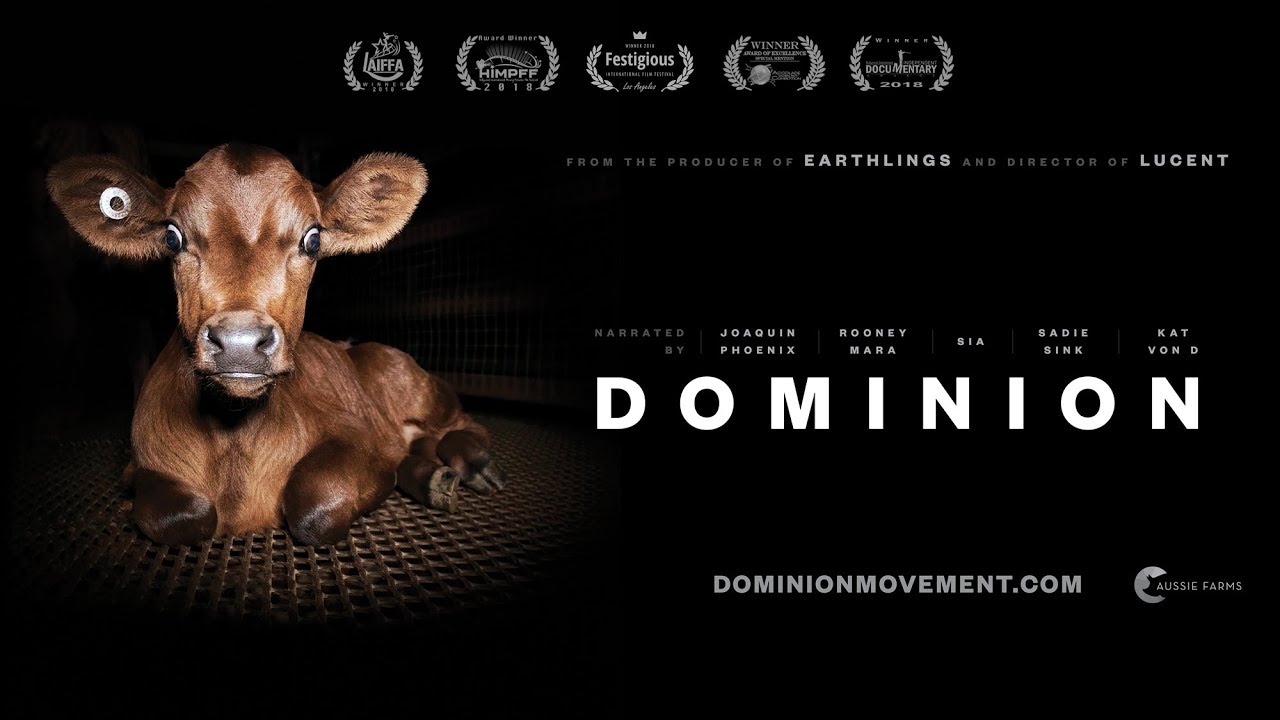Timestamps:
0:00 - Introduction
04:12 - Pigs
23:19 - Egg-Laying Hens
30:49 - Broiler (Meat) Chickens
41:11 - Turkeys
45:29 - Ducks
53:03 - Cows
1:11:07 - Sheep
1:17:19 - Goats
1:21:57 - Fish
1:26:46 - Rabbits
1:29:24 - Minks
1:30:55 - Foxes
1:32:23 - Dogs
1:37:58 - Horses
1:40:43 - Camels
1:42:16 - Mice
1:43:51 - Exotic Animals
1:46:07 - Seals & Dolphins
1:49:16 - Conclusion
1:55:47 - Closing Credits
This was the doc that sold me fully on going vegan.
If you like meat, learn more about where it comes and the practices you are promoting to access it, then decide whether or not to continue.


deleted by creator
deleted by creator
deleted by creator
Nitpicks from somebody who lives on a small farm.
"... most male cows are killed after just a couple years of life..."
Slaughter weight for cattle is about 12 months for conventional production and might be something like 1.5 to 2 years on a hippy dippy pasture operation, regardless of gender. The longer you keep a cow the more the feed costs add up. And folks who eat meat will complain that the meat is too tough and/or isn't fatty enough.
"Efficiently producing dairy requires constantly impregnating cows..."
You don't need to keep impregnating a cow to have it give milk. (Think about the human who are considered "weird" for breast feeding their child for more than a few years.) A lactating cow will continue to lactate for as long as something is draining the milk from their udders and they are kept reasonably healthy. Breed a cow once, keep it healthy, milk it every day and you can have milk for years. Dairy farms, the actual people working the cows, take the brunt of the dairy industry crash and can be pushed to keep breeding their milking herds to have extra income by selling bulls for breeding/meat and extra cows as replacements/meat.
I think a better term to use is "profitability" not "efficiency". Not letting bull calves stay with their mothers who are being milked in a diary is an economic decision not an efficiency decision. Because feeding bull calves has a cost to the farmer and falling milk prices means every ounce of milk produced needs to be sold to cover expenses of running a dairy farm. Using Jersey cows selectively bred to give several gallons of milk a day instead of a Dexter that typically gives a gallon or less per milking is an economic decision, not an efficiency decision.
deleted by creator
Yeah, I may not have read too closely when you mentioned the time period to butcher weight.
Well, I mean, I've been living on a farm with a dozen cows that my wife has been managing and selling the raw milk from for about 5 years now. From what I've seen from watching her work, the claim that any attempt to get milk from a cow means that they have to be constantly bred doesn't seem to pan out. Maybe we're just talking past each other while focusing on different management practices though.
I'm not a fan of the "profit" framing regarding selling bull calves from dairy operations. From what I'm aware of, dairy farms don't get to set their sale price and are stuck taking whatever prices the bottling plant is willing to offer (knowing that the farmer can't afford to withhold and there is no where else to sell too). So when I see the price of milk increase in grocery stores and read about the price of milk falling, I know that its the farmer who's having to take a cut in income. Selling bull calves is just a way to try to close the gap. Like, nobody here would view a person working two jobs to try to keep up with bills as "increasing their profit" from working, right?
Dairy as an inefficient way making food. I'm curious to hear what you have to say about that (honestly). From where I stand, cows can graze areas that absolutely cannot be used to grow crops and cows turn things that we cannot eat into something that we can. So that seems a decent way to make food.
deleted by creator
Most cattle are fed crops? You mean right before slaughter right? You don't think that a cow is being fed grain for its entire life before going to butcher do you?
deleted by creator